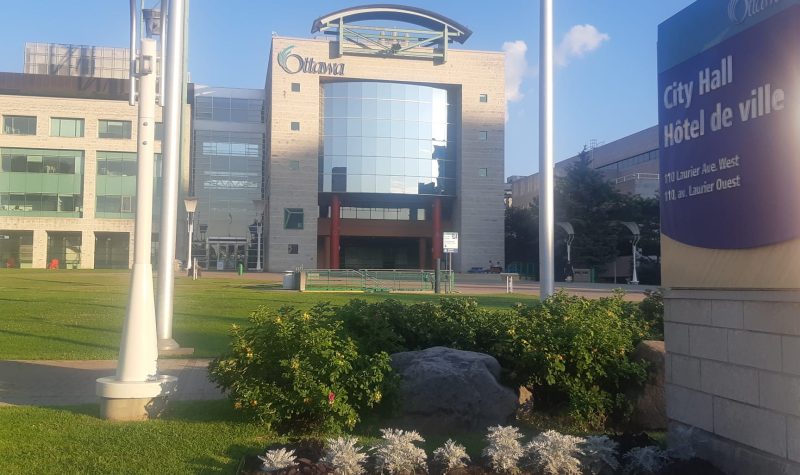Ottawa city council approved the amended 2022 Draft Budget on Wednesday after weeks of deliberating over its contents.
Parts of this year’s budget were controversial, such as the Ottawa Police Service Board (OPSB) draft budget, which requested an extra $14 million in the new year. The request received mixed reactions from residents and councillors.
In June, the OPS was tasked with designing a draft budget that assumed a zero-per cent increase. Any expenditures that exceeded a zero-per cent increase would be subject to review by a third-party auditor.
Some residents and councillors called on the OPSB to freeze the 2022 police budget at 2021 levels, as they had vowed to do in the summer. As a compromise, the OPSB was granted $11.45 million, or a two per cent budget increase.
During Wednesday’s city council meeting, Ottawa Police Chief Peter Sloly sought final approval for the OPSB budget, but warned against “significant risks” that would come with it.
“There are multiple financial and operational risks included in the board's approved 2022 budget, including the possibility of a 2022 year-end budget deficit,” says Sloly. “This is given the likelihood of unplanned natural disasters, which you've experienced in this city over the last several years, or manmade public safety crises and mass shootings. The next risk area is the inability to meet the increasing demands from community stakeholders across the city and literally in every ward for more police services. The third area of risk is the lack of any current concrete plans to implement alternative service delivery models in the city.”
Sloly says the OPS must be provided oversight for any processes taking place to replace services currently within police jurisdiction.
At a meeting of the OPSB last month, members of the public, along with some board members, pushed to reallocate some funding from the police budget to other city services.
Sloly said he welcomes transitioning some services from the police’s jurisdiction to other city sectors. However, he attests that police have assumed responsibility for many services, such as mental health, due to other agencies not handling them properly.
“It became therefore a default to police to respond to a wide variety of things [such as] innocuous low-risk, low acuity wellness checks,” says Sloly.
Sloly says that creating distance between the OPS and these services could take years, given that this process would involve heavily supplementing other sectors.
“The police don't need to be involved in that in Ottawa or any part of Canada,” says Sloly. “I'd love for that to stop tomorrow, [but] it will probably take several months. And it could take several years for that level of transition to happen.”
Concern over use-of-force among Ottawa residents has grown in recent years with the police-involved deaths of Abdirahman Abdi and Anthony Aust in 2016 and 2020 respectively. In both cases, heavy-handed police tactics played a part in the deaths of unarmed Black men.
The current model of crisis response includes three bodies: fire, paramedic, and police. Some community advocates are calling for the addition of a fourth, which would handle response to non-violent, low-risk crises.
With the decrease to their proposed funding, the OPSB was able to identify a total of $7.1 million in efficiencies, a $2 million increase from their initial figure.
Sloly wouldn’t make any promises about being able to work with the decreased funding.
“I can't say it's doable,” Sloly said. “I can say we're going to do everything we can to get to that level... by looking at every line item from front office to back office.”
Funds which are removed from individual committee budgets are returned to the city budget to be reallocated toward other city services, however Chair of the OPSB Councillor Diane Deans introduced a motion to allocate the funds removed from the police budget to aid in the creation of a newly established community mental-health response.
The approved budget will take effect on Jan. 1, 2022.
Listen to the CHUO story below:


